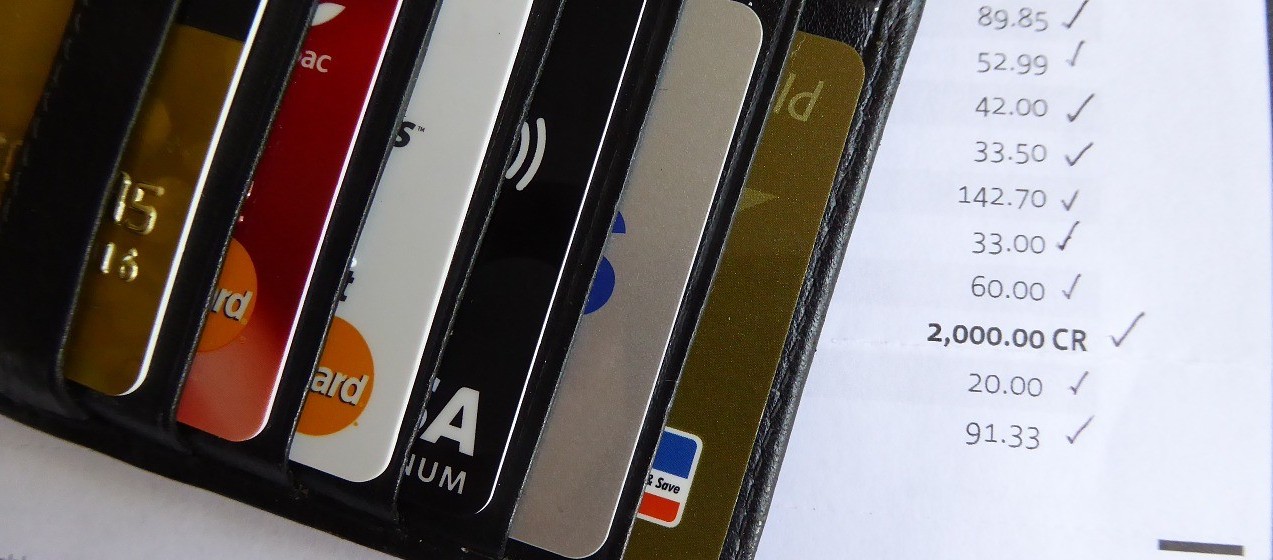Congratulations! If you’re reading an article like this, you’re probably at a place in your life where home ownership is on the horizon. Maybe you’re tired of renting, looking to build equity, or just longing for a place to call your own. Maybe you’re just curious about what the process involves so you’ll be ready for it in a few years. Seattle Mortgage Planners would like to introduce you to our guide for first time homebuyers who are interested in buying a home but don’t fully understand what kind of legwork they need to do to get ready.
First of all, you’re not alone! You’d be surprised how many people think that buying a home means walking into an open house, declaring, “I’ll take it!” and writing a check. But the reality is much less cinematic, and there are many steps first time homebuyers should take before you even start looking at houses.
1.) Determine What You Can Afford

The first step toward home ownership is to determine what you can afford, or if you can afford to buy at all. The mortgage research source HSH.com recently compiled a much-publicized list of the minimum salaries necessary to buy a home in 27 major American cities; for Seattle, the minimum salary they calculated was $79,283, assuming 20 percent down, a 30 year mortgage, and the median Seattle home price of $386,300. Of course, that’s a ballpark number, but it can be helpful as a guideline not meant to discourage first time homebuyers beneath the benchmark so much as to empower those above it.
We also recommend using easy online tools like Zillow’s Affordability Calculator, which helps you determine “how much house you can afford” based on your income, down payment, debts, and other factors. Play around with it if you’re in the market! It’s interesting to see how many factors can affect purchasing power; if you have enough put away for a larger down payment, choose a longer mortgage, or secure a better interest rate, your salary can be lower.
Give and Take
It’s also crucial to understand how features of a home affect its price. If you need more square feet, maybe you should buy further from downtown. Do you want a condominium, or a single family home? If you want hardwood floors and large windows, that might be in your price range if you find something with an older kitchen. How much sweat equity are you hoping to invest? Determine what’s most important to you and work from there.
Of course, you won’t know what you can actually afford until you sit down with a broker or a real estate agent, but these are great tools to get you started as a first time homebuyer! Everyone has their own unique set of circumstances, but it’s easier to buy a house than most people realize—after all, if you’re renting, you’re already paying a mortgage, you’re just paying someone else’s mortgage.
2.) Determine Your Credit Score

The one thing that can stop the process of buying a home in its tracks is your credit score. Your credit is typically scored on a scale of 300 to 850, as determined by your track record for how responsible you’ve been with borrowed money in the past. According to Wells Fargo, the factors that make up your credit score include your payment history (35%), amounts owed (30%), length of credit history (15%), types of credit in use (10%), and account inquiries (10%). The higher your score is, the better.
What’s a Good Score?
There are no exact numbers for what kind of credit score will qualify you for a mortgage, because myriad aspects of your finances such as income, savings, and your down payment are part of the formula. But there are some benchmarks you’ll want to keep in mind, and though these are of course only guidelines, here’s a breakdown offered by bankrate.com of what the ranges of credit scores indicate:
- 740 and higher = Excellent
- 661 to 739 = Good
- 601 to 660 = Fair
- 501 to 600 = Poor
- 500 or lower = Bad
How Do I Find My Credit Score?
For starters, even the term “credit score” is a bit misleading, because you actually have multiple scores. The three major credit reporting agencies in the nation—Experian, TransUnion, and Equifax—may have slightly different data for determining your rating, which produces different scores.
Thanks to the Fair Credit Reporting Act (FCRA), each of these companies is legally obligated to provide you with a free score report once a year, which you can order my visiting annualcreditreport.com. It can be helpful to order one from each agency so you can compare the reports and identify any errors or discrepancies. You can also buy a credit report at myFico.com for $19.95 for each agency you’re requesting from. You also may be able to simply check your credit card or loan statement, as they often provide their customers with free score reports in monthly statements.
3.) Improve Your Credit Score*

Your credit score not only determines whether you can get a loan, but also what kind of loan and on what kind of terms. We all hope we’ll be able to walk into a lender’s office with a credit score of 800, an excellent income report, and a solid 20 percent down payment, but if you’re not in that slim minority, you may want to improve your credit score before you try to borrow.
Understanding the Impact of Credit Scores
Since the housing crisis of 2008, lenders have dramatically raised their standards for who they consider qualified for a mortgage. In 2005, 1 of every 7 loan applications were approved for borrowers with scores under 630; in 2013, only one of every 500 applications with scores under 630 were approved.
It’s crucial to realize that there are two different kinds of home loans, and your credit score has a big impact on which you will qualify for. Federal Housing Administration (FHA) loans are the most common for first-time homebuyers, and accept borrowers with lower credit scores and require a down payment of only 3.5 percent. Conventional loans, on the other hand, typically require a 20 percent down payment and a higher credit score. However, FHA loans require borrowers to pay monthly mortgage insurance that protects lenders in the event of defaulting, and the interest rates are usually higher than for conventional loans.
What Do I Qualify For?
The current technical minimum credit score for an FHA loan is 580, which is a full 60 points lower than it was in 2014, though very few large lenders (like major banks) will consider lending to someone with a score under 620-640. To start looking at conventional loan, the rule of thumb is a credit score of at least 650, though a score in the 700s will be a major boon to your case.
Should I Improve My Score?
If your score is under 600, your priority should be improving your credit score before trying to buy a home, because even if you can find someone who will lend to you, your interest and insurance rates will likely be prohibitively high. You may also want to increase your score to move up from an FHA loan to a conventional loan or to qualify for better rates.
To improve your credit score, you can pay off your debts, pay more than the minimum on your cards each month, and investigate your credit report to determine if it has any errors (25 percent of people declined for a mortgage every year have errors on their credit reports!). If you’ve made mistakes in the past, your credit will naturally improve over time as you continue to faithfully pay your debts.
In more of a hurry? You can try hiring a credit repair agency. Many of these agencies are scams, so beware and be careful, but there are also many of them that actually work and can help you boost your score significantly. These agencies are able to identify errors, have negative reports remove, negotiate with lenders on your behalf, and exploit other industry loopholes.
4.) Gather Your Documentation

If you know that your credit score is high enough that you’ll be able to borrow at a satisfactory rate, the next step is gathering the documents you’ll need to take to the lender. If the thought of going into a bank or a firm and asking for a sizable loan makes you nervous, it will help you feel more confident if you know you’re showing up with all the necessary paperwork.
Here is our checklist of what you’ll need:
- A government-issued photo ID, such as a driver’s license, state ID card, passport, or military ID
- Your social security number (card not necessary)
- W-2 forms for the last two years, if you collect a paycheck
- Profit and loss statements or 1099 forms, if you own a business
- Tax returns for the last two years
- Pay stubs for the last two pay periods
- Bank statements for the last 90 days
- Complete list of assets (such as mutual funds, real estate and auto titles, other investments)
- Complete list of your debts (such as credit cards, student or car loans, medical debt, or child support) and minimum monthly payments and balances
- Canceled check for your rent or mortgage
Dress professionally, keep your files neat, don’t get anxious, and get ready to meet your loan officer!
5.) Visit a Lender

If your credit score is in order—or even if it isn’t and you’d like some advice—and you’ve gathered all necessary documentation, you’re now ready for what often feels like the moment of truth: visiting a lender.
Bank or Broker?
There are typically two ways of securing a home loan: through a bank or through a mortgage broker. Most people’s instinct is to go to the bank they’re already working with. For example, if you’ve had a checking or savings account with Wells Fargo for years, you might want to go to Wells Fargo to see what kind of mortgage plans they can offer. And though major banks occasionally can give you the best deal, we recommend talking with a mortgage broker as well.
Mortgage brokers are kind of like travel agents—or perhaps more relevantly for the digital age, they’re like airfare comparison sites such as Priceline or Kayak. You could go to each airline’s individual webpage to try to find the best deal for your trip, or you could simply go to Kayak and have it sift through all the options for you. Mortgage brokers are able to look at rates, terms, and types of loans from many different lenders on your behalf, meaning that they’re not only usually able to secure you a better rate, but they’re also able to save you time. Applying for a mortgage once is a headache—going to five different banks to shop for rates on your own is five times the headache.
Personalized Assistance
Another advantage of brokers over banks is that you have an actual person as your contact point for your loan. There’s a number you can call for questions and you can meet with the same person every time. Furthermore, lenders at large banks and mortgage brokers have different interests when it comes to whether or not they approve the loan. For a broker, their money isn’t at stake if you wind up defaulting, and so they will work a lot harder to find you a loan than the officer at Wells Fargo whose first priority is the bank.
Mortgage firms are also especially good for buyers who have bad credit, low income, or need some kind of specialized assistance. Brokers are able to dig up loans from small banks, specialty lenders, or out-of-state lenders that have more flexible criteria for borrowers.
Shop Around
The downside of using a mortgage broker is that they usually charge a brokerage fee, which some borrowers hope to avoid by going directly to the banks. However, it’s important to remember that a conversation is usually free—a mortgage broker won’t charge you anything unless you sign onto the loan they find for you, meaning that they’re incentivized to find you the most competitive deal. Buyers should definitely consult with at least one broker before committing to rates elsewhere.
Find a Broker
 It’s certainly true that there are some brokers who are in it to make a buck and don’t care about the outcome for their clients. However, after the housing crisis, the SAFE Mortgage Licensing Act was passed in 2008 which eliminated many of the shady practices. To avoid working with brokers who might take advantage of you, look for brokers who seem well established in their field—they have an office you can visit, testimonials, a robust online presence, or many years of experience. A good mortgage broker aims to be your broker for life, not just one transaction.
It’s certainly true that there are some brokers who are in it to make a buck and don’t care about the outcome for their clients. However, after the housing crisis, the SAFE Mortgage Licensing Act was passed in 2008 which eliminated many of the shady practices. To avoid working with brokers who might take advantage of you, look for brokers who seem well established in their field—they have an office you can visit, testimonials, a robust online presence, or many years of experience. A good mortgage broker aims to be your broker for life, not just one transaction.
If you’re wondering how to go about finding a reliable broker, the first place to look might be any friends or family members you know who’ve worked with someone with whom they were very happy. If you don’t have any recommendations, we encourage you to shop around and find someone your trust. (And to learn more about you why you might want to choose Seattle Mortgage Planners in particular, please visit our Why Us page!)
6.) Go Look at Homes!

If you’ve worked through all the steps of this guide, you’re ready to start viewing homes! If you arrive at home showings pre-qualified for a loan (which is different than being pre-approved), you’ll know how much you can afford and, more importantly, real estate agents and sellers will know that you can actually walk the walk. Pre-qualification shows that you’re not only going to be able to finance the purchase of what you’re looking at, but that you’re serious about trying to buy.
We recommend viewing at least a few different homes before putting down a deposit anywhere, and working closely with a real estate agent who will be able to show you the kinds of homes you’re really looking for without wasting your time on the ones you’re not. Happy hunting, and welcome home!
*This article does not constitute credit advice. Please consult a financial advisor regarding your specific situation. The contents of this article are intended to convey general information only and not to provide credit advice or opinions. The contents of this article should not be construed as, and should not be relied upon for, credit advice in any particular circumstance or fact situation.
